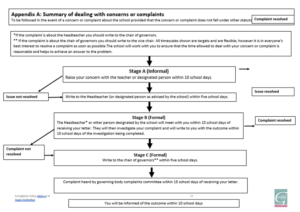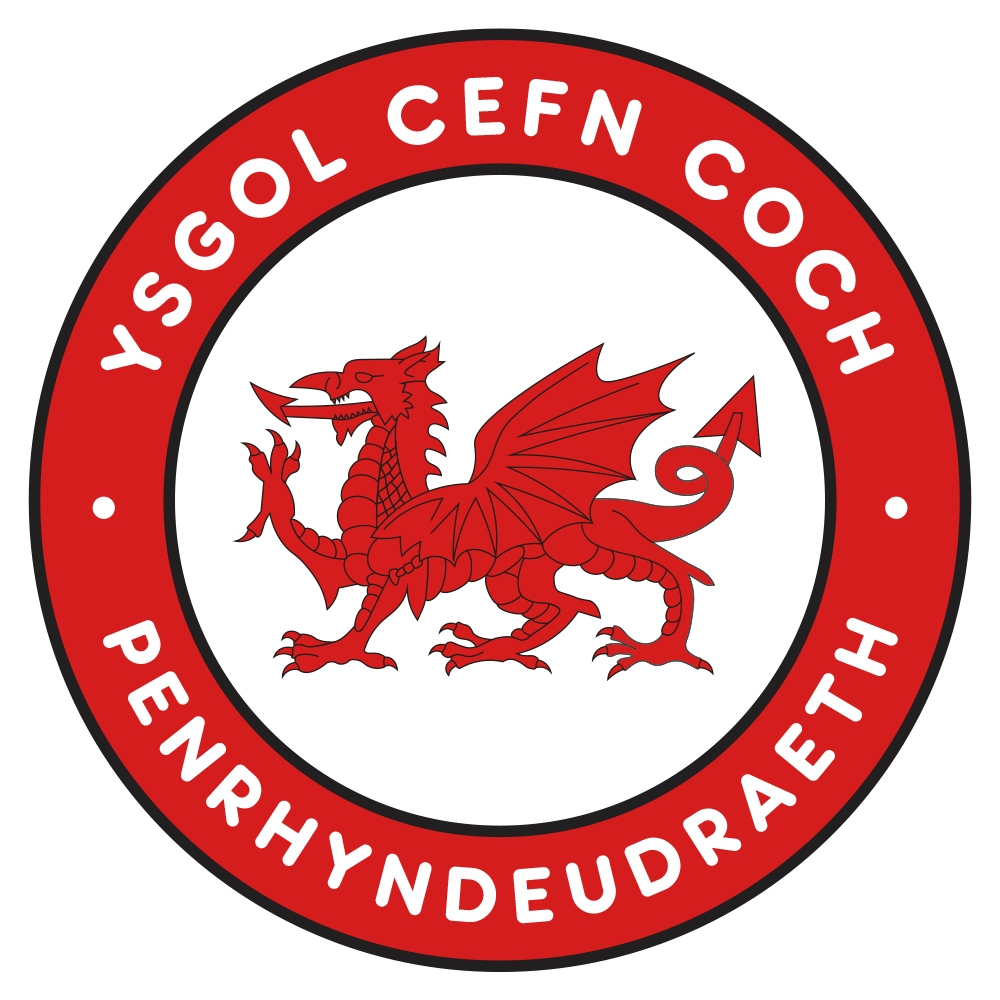OUR CURRICULUM
The world is changing, and we need new ideas and creative use of technology. To address these challenges, we here at Ysgol Cefn Coch want to make sure that your child has the knowledge, skills, and experiences they’ll need to make the most of life. The school’s teachers have been working together to develop a new curriculum for our schools so that we can fulfil all elements of the Curriculum for Wales.
THE FOUR PURPOSES
The four purposes are central to the Curriculum for Wales and are integral to the life and work of our schools. The school will be supporting your child to be:
- an ambitious, capable learner, ready to learn throughout their life
- an enterprising, creative contributor, ready to play a full part in life and work.
- an ethical, informed citizen, ready to take part in Wales and the world
- a healthy, confident individual, ready to lead a fulfilling life as a valued member of society.
AREAS OF LEARNING AND EXPERIENCE
There are six areas of learning and experience in our curriculum. Everything your child learns will be connected to these areas and they are common to children from 3-16 years of age. Here is a brief description of each.
Expressive Arts
In Expressive Arts, your child will explore art, dance, drama, film and digital media and music to develop their creative, artistic and performance skills. We believe that creative arts stimulate creativity and imagination. Opportunity is given to learners to explore and learn about artists in the local area and beyond, developing techniques and skills with practical experiences.
Humanities
In Humanities they’ll learn about the world, society, and events in the past and present. They’ll explore the challenges and opportunities that face us, and what ethical action we can take to safeguard the world and its people in the future. Within the Humanities area of learning and experience, learners are given opportunities to learn about history, geography, and religions. They also learn about business and politics i.e., how the country is run, and about society and how people in our country live together.
Mathematics and Numeracy
In Mathematics and Numeracy, your child will develop their understanding of numbers and use symbols in maths. They’ll explore shapes and measurement and learn about statistics and probability.
Mathematical ideas and techniques are an essential part of everyday life and contribute considerably to our understanding of the world around us. The school aims to develop a positive attitude to mathematics as an interesting subject to be enjoyed. We endeavour to develop in the child the ability to think clearly and logically with confidence and adaptability, skills which will allow him/her to express ideas lucidly, to discuss a subject with confidence and to use mathematical language when applying skills and knowledge to situations at home, at school and in society.
Health and Well-being
Health and Well-being is about looking after their physical and mental health including emotional well-being. They’ll learn about healthy eating and how to make good decisions, deal with influences and develop healthy relationships.
Health and Wellbeing is at the heart of our curriculum and is developed throughout all areas. This area of learning and experience ensures opportunities for learners to learn about having a healthy body, and a healthy mind. They also have opportunities to understand what healthy relationships are and how to make good life decisions.
Children learn about themselves, their relationships with other children and adults and how to be a positive member of our community. They are encouraged to develop their self-esteem, their personal beliefs, and moral values, and to gain a positive awareness of their own and other cultures. The children are taught early on about staying safe within the community which includes the importance of E-Safety.
Languages, Literacy and Communication
In Languages, Literacy and Communication, your child will learn about languages. They’ll understand and use Welsh, English, and other languages. They’ll study and create literature, and communicate in spoken, written or visual ways. This could include poetry, drama, and film.
We endeavour to foster a positive attitude towards language by offering the child a variety of experiences which will stimulate a sensible, intelligent, and lively response, thereby developing linguistic ability in all its passive and active aspects, in both languages. We encourage children to take an interest in literature in all its forms, ensuring that the experience of reading, listening, watching, and responding are always pleasurable and satisfying. In this way, we create in the child an awareness of the value of Welsh heritage so that she/he may empathise with the richness of his/her (indigenous or adopted) cultural background, as well as encouraging respect for other cultures. Basically, we develop four linguistic elements, namely listening, speaking, reading, and writing.
Science and Technology
In Science and Technology your child will learn about biology, chemistry, physics, computer science and design and technology. They’ll learn about design and engineering, living things, matter, forces and energy, and how computers work.
What Matters
Your child’s learning should focus on things that matter to them now and when they grow up. Each area of learning and experience contains statements of what matters which shape learning for children of all ages. These help your child think about what they’re learning and how topics link to each other, to work and to life. They also support your child to progress each year as they build their understanding and skills.
There are more opportunities for your child to learn important skills for life that will help them to:
- appreciate the world around them
- ask questions, look at evidence, make decisions and solve problems
- explore, communicate, create plans, and find solutions
- build resilience and manage their well-being
- work with others and
- make decisions about their future career based on meaningful experiences in learning, work, and entrepreneurship.
Here’s an example of how this works. In the Science and Technology area
of learning and experience, one of the statements of what matters is:
‘The world around us is full of living things which depend on each other for survival.’
As your child learns, they’ll think about this in different ways, like this:
- I know that there are endangered animals.
- I understand that what I do has an impact on the environment, people
and animals.
- I can identify ways to reduce the impact of climate change on the environment, humans, and animals.
OTHER ELEMENTS
In addition to the six areas of learning and experience, we will have to include the following mandatory elements in our curriculum:
- Welsh
- English from age 7
- Relationships and sexuality education (including the details of the Code for Relationships and Sexuality).
- Religion, Values and Ethics
- Cross-curricular skills of literacy, numeracy, and digital competence
Relationships and sexuality education (RSE)
The subject of relationships and sexuality education is taught with sensitivity. It is not a discrete subject but integrated into the personal, social and health education provision. It calls for openness in the classroom and honest replies to questions as they arise from individual rather than isolated lessons devoted to the subject with the whole class. The importance of a family life and loving and caring relationships within that context should be a central feature of this aspect of the Curriculum. If any parent is concerned about this aspect of the curriculum, then please feel free to contact the Headteacher.
Religion, Values and Ethics and Collective Worship
The whole school assemblies and Religion, Values and Ethics lessons are an important part of the schools’ ethos. The religious aspect is linked to the children’s own experiences in their everyday lives, emphasising religion’s altruistic and caring aspects. The separate services held in the classroom are also an important part of developing a feeling of community. The children are taught about different religions with the emphasis on Christianity.
CURRICULUM PLANNING
Here at the Ysgol Cefn Coch a combination of methods are used to plan the curriculum in accordance with the requirements, age of learners and context of learning. Elements of planning for direct, disciplinary and multidisciplinary teaching occurs in order to learn and practice specific skills e.g. mathematic skill, phonics.
Interdisciplinary and integrated elements are used in order to practice skills further and apply them in different cross-curricular contexts e.g. drawing elements of Mathematics, Language, Digital Competency and Science together when researching and writing a report comparing animal who live on land and in the sea..
Most of this school’s learning experiences are planned on the grounds of learning through a project or Big Questions ( e.g. How do people show that they belong?) or specific theme ( e.g. Owain Glyndŵr, Parc Cenedlaethol Eryri).
The child’s voice, their families and the community are important to us and our plans are flexible to be able to follow different routes (local/global) as the opportunity arises to make our learning experiences relevant, interesting and timely.
PEADAGOGY
Excellent teaching is essential if we are to realise the four purposes, our vision as a school and the requirements of the Curriculum Framework.
We continuously consider, share, and develop our teaching methods. This is based on our understanding of the 12 principles of pedagogy noted in the Curriculum Framework and on the methods, we find to be successful at the school.
Ensuring a learning environment of the highest standard is integral to us here at Ysgol Cefn Coch. This is done by ensuring consistency across the schools and by creating a safe and stimulating ethos so that our learners venture and appreciate mistakes as an essential step in their learning. In a safe and stimulating environment our learners learn in an atmosphere of respect and are appreciative of everyone’s efforts.
ASSESSMENT
Assessment will be part of your child’s learning every day. They’ll work with their teachers to understand how well they’re doing. This is important to help them:
- see where they are in their learning
- plan their next learning steps
- spot any issues or extra support they need
and to help their teacher:
- find ways to challenge them and
- see how well pupils are doing.
The school will also work with you to make sure that your child has the help they need to move forward.
COMPLAINTS REGARDING THE CURRICULUM
Complaints regarding the Curriculum can be submitted in accordance with the provisions established under Section 409 of the Educational Reform Act 1996. This procedure is outlined in a document in Welsh and English available at the school. A copy will be provided free of charge to any parents seeking to make a complaint under these arrangements and the Authority can, if necessary, provide a copy in a language other than Welsh or English.
It is emphasized, however, that many complaints can be dealt with quickly and effectively by informal consideration based on discussions with the Head teacher. This is the first logical step, and the governing body would expect this step to have been completed before submitting the complaint formally in exceptional cases.
An appointment should be made to discuss any complaint with the Head teacher by contacting the school.

